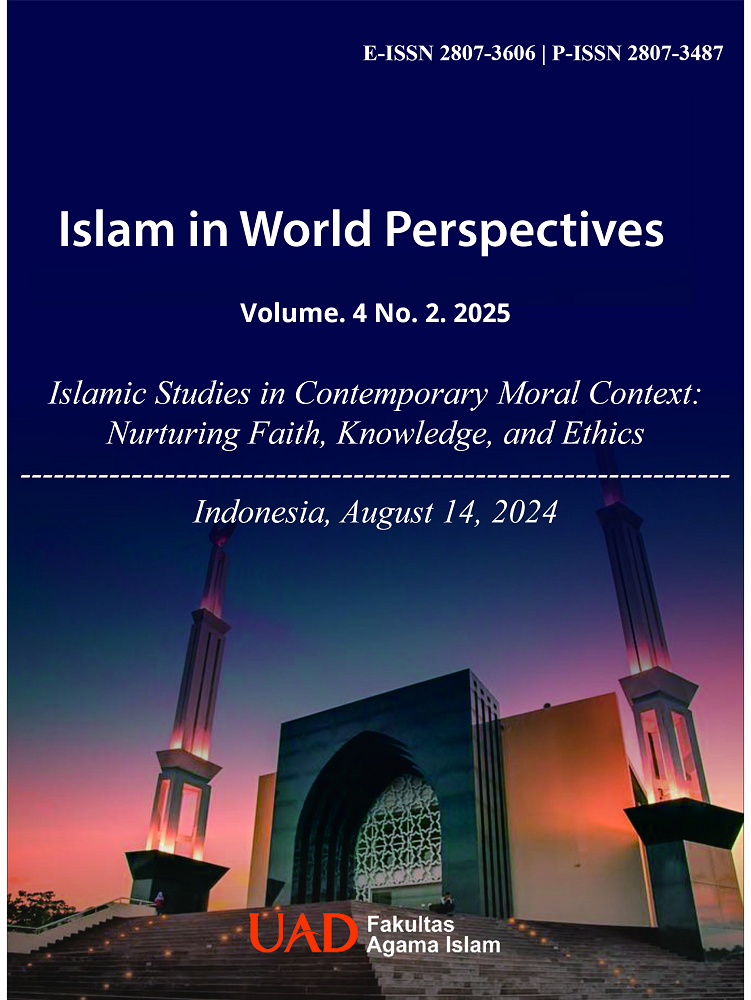Theoretical Study: Ethics in the Use of Technology in Islam
Abstract
In the rapidly advancing digital era, technology has become an integral part of daily life, including within Muslim communities. This study discusses the ethics of technology usage in Islam, focusing on how Islamic principles can be integrated into modern technological practices. Ethics in Islam extends beyond the rules of fiqh, encompassing morality, social responsibility, and the impact of technology on spiritual life. The study emphasizes the importance of using technology wisely, in accordance with the teachings of the Qur'an and Hadith, while considering the potential benefits and harms. It also examines the perspectives of Islamic scholars and thinkers on technological advancements, and how Muslims can use technology for good, avoid misuse, and maintain a balance between technological progress and Islamic values. In this article, a qualitative method is employed, specifically through library research, to seek and acquire data. The research in this article utilizes library sources such as journals and other relevant materials, which are then collected. To find references related to the article’s title, data collection techniques involve searching for various sources digitally/online. Once the references are gathered, the data from these sources are analyzed, paraphrased, and organized to produce a coherent, comprehensive, and relevant concept in accordance with the specified title. The research findings suggest that technology should be used as a tool to strengthen faith, enhance knowledge, and support noble objectives in Islam, while adhering to the ethical principles established in the Sharia.
Downloads
Published
Issue
Section
License
Copyright (c) 2024 Rubini Rubini, Haura Salil Jinan Murtadlo Hirtsa, Ratri Nuria

This work is licensed under a Creative Commons Attribution-ShareAlike 4.0 International License.
Authors who publish with Islam in world perspectives agree to the following terms:
- Authors retain copyright and grant the journal right of first publication with the work simultaneously licensed under a Creative Commons Attribution License (CC BY-SA 4.0) that allows others to share the work with an acknowledgment of the work's authorship and initial publication in this journal.
- Authors are able to enter into separate, additional contractual arrangements for the non-exclusive distribution of the journal's published version of the work (e.g., post it to an institutional repository or publish it in a book), with an acknowledgment of its initial publication in this journal.
- Authors are permitted and encouraged to post their work online (e.g., in institutional repositories or on their website) prior to and during the submission process, as it can lead to productive exchanges, as well as earlier and greater citation of published work.

This work is licensed under a Creative Commons Attribution-ShareAlike 4.0 International License.



